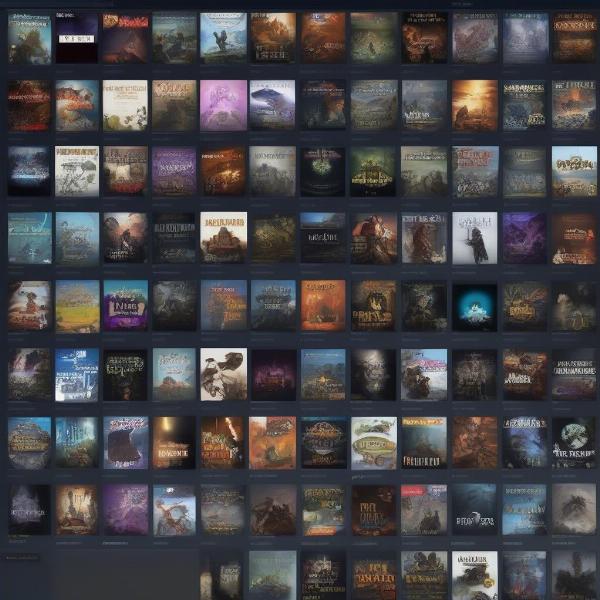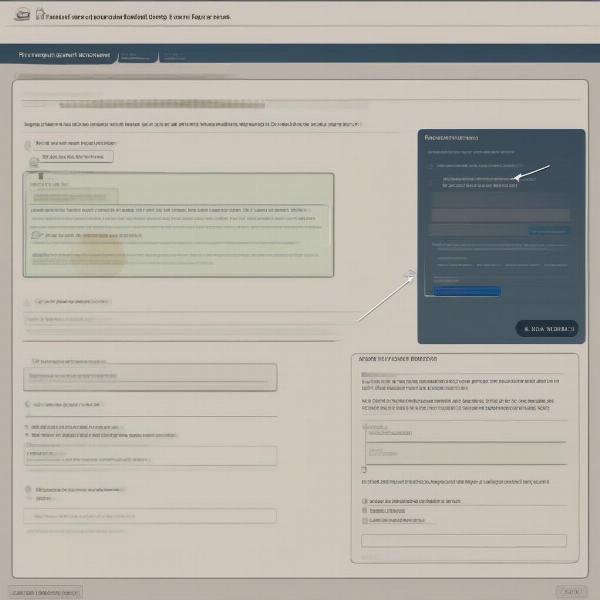The question of whether you can sell Steam games is a common one among gamers. At supremeduelist.blog, we understand the value of your digital game library and the desire to recoup some of your spending. This article will explore the nuances of selling Steam games, clarifying the official policies and potential alternatives that are available to you. We’ll delve into the limitations, why they exist, and what you can do if you wish to monetize your gaming collection in other ways.
This exploration will cover the official Steam stance on reselling, why it’s so difficult, and offer alternatives to selling games directly. We aim to equip you with a clear understanding of your options regarding your purchased Steam games, while also ensuring you stay within the platform’s terms of service. We’ll provide a balanced view, taking into consideration both the user perspective and the policies set forth by Steam and the wider industry.
Steam’s Official Stance on Selling Games
The most straightforward answer to “Can You Sell Steam Games?” is, officially, no. Steam’s policy explicitly prohibits the resale of game licenses. When you purchase a game on Steam, you’re not buying a physical product; instead, you acquire a license to access and play the game on your Steam account. This license is non-transferable and intended for your personal use only, this is similar to the restrictions on some platforms, if you were thinking about, can you gift switch games , you also find some restrictions in place.
This is not to say that you aren’t actually buying the game, it’s that the purchase is tied directly to your Steam account. This prevents you from transferring the license or selling it to another user. This policy is in place to protect the game developers and publishers, ensuring that they receive revenue for every purchase of their product, and reduce the likelihood of fraud.
Why Can’t You Sell Steam Games?
Several factors contribute to Steam’s policy against selling games:
-
Digital Rights Management (DRM): Steam games are often protected by DRM, which restricts the usage of a game to the purchasing account. Reselling games would require a process of revoking the existing license and transferring it, which is not easily implemented on a large scale.
-
Preventing Fraud: Allowing resale of game licenses would open the platform to increased fraudulent activity. Reselling game codes or account credentials can lead to scams, putting both buyers and sellers at risk.
-
Publisher Agreements: Steam’s terms are heavily dictated by the agreements between Valve, the parent company of Steam, and the game developers and publishers. Allowing a secondary market would interfere with revenue models and agreements. These models are generally similar to other online services, such as those you would find when discussing the issue of, can you play ea games without ea play.
-
Game Security: Reselling might lead to compromised game accounts. Once an account is resold, it’s outside of Steam’s usual protection and can lead to security risks for the user that has purchased the license.
 Steam Library Games Overview
Steam Library Games Overview
The Resale Challenges
Selling a physical game is often easier than reselling a digital one. Physical copies can be transferred between people, sold at local shops, or traded between friends. This flexibility isn’t available for digital purchases. For those wondering about the differences between digital and physical, it’s important to remember that the value and saleability of products differ depending on the platform, much like trying to figure out, can you transfer ps5 games to pc, it’s not as simple as copying a physical disc. The license structure of digital games is very different from physical games, preventing ease of transfer.
What if you no longer want to play a game?
-
Account Security:
-
Selling your whole steam account would risk access to your credit card, personal information and other games
-
This would be a permanent loss of access to your account
-
This would be a violation of the terms of service
-
The risks of third party marketplaces:
-
A game that you do not own the license for could be revoked
-
These sites can be unreliable and could scam you
-
You can be tricked into buying a fraudulent game license
Alternatives to Selling Steam Games
While you can’t directly sell your Steam games, there are alternative routes if you’re looking to recoup some of your money or manage your gaming library.
Trading Cards and Market Items
Steam has its own integrated market system where you can trade in-game items and trading cards. If you’ve played a game long enough, you’ve probably collected trading cards, and these cards, along with other in-game items, can be sold on the Steam market. Although this process doesn’t directly give you money for your game itself, it provides an alternative route to make some money back that can be used on other games or Steam-related products.
This system allows you to collect and then sell digital items that are tied to your game usage. While this is not a direct way to sell a game, it is a way to recoup a portion of the cost.
Steam Refunds
Steam offers a refund policy that can be useful if you’ve purchased a game you no longer want to play, which you might compare to the policies of other platforms regarding, can you use vpn to buy steam games cheaper. If you have played the game for less than two hours and purchased it within the last two weeks, you can request a refund. If approved, the money will be credited to your Steam wallet or the original payment method. This is useful for trying games or if you discover a game isn’t for you.
Sharing with Family
Steam’s family sharing feature allows you to share your game library with family members and other users, without having to sell or transfer your own license. While you can’t monetize this feature, it offers an avenue to share your games and allow others to play them, which can feel good and allow others to experience games you no longer play or value. This allows your games to still be enjoyed, even if you are no longer interested.
 Steam Refund Request Interface
Steam Refund Request Interface
Exploring Cloud Gaming Services
While not directly related to selling your Steam games, if you are looking for flexibility with your games, some cloud gaming services integrate Steam libraries. This allows users to play their purchased games on other devices, such as on mobile phones or portable gaming systems, expanding your accessibility. If you find yourself often on the move, you could also consider whether, can you play steam game portably, which could help you get value from the games you own, even without a primary PC available.
Expert Insights
“The digital nature of game licenses means they are tied to your account,” explains Dr. Emily Carter, a game industry analyst. “This system is beneficial for developers and publishers, but it does create limitations for users who may wish to sell their games later.”
“Steam’s policies are consistent with industry standards,” says Johnathan Wells, a gaming technology researcher, “DRM and other protective measures make reselling digital games quite complex from a technical and legal standpoint.”
Can we expect changes?
While there are currently no indications that Steam will change its policy regarding selling games, the gaming landscape is always changing. In the future, we may see new technologies or business models that could alter these restrictions.
Conclusion
While you cannot directly sell Steam games due to the platform’s policies and licensing agreements, there are alternative ways to manage your library and recoup some of your investment. Exploring options such as trading cards, Steam refunds, family sharing, and cloud gaming services can provide different avenues to find value in your digital library. Stay tuned to supremeduelist.blog for the latest in gaming trends and analysis. It’s worth remembering that although you can’t sell your licenses, Steam offers a comprehensive and varied gaming experience.
Leave a Reply